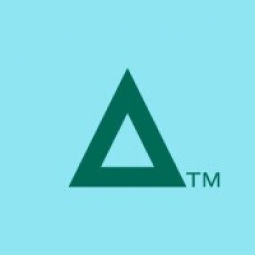Technology Category
- Cybersecurity & Privacy - Malware Protection
- Cybersecurity & Privacy - Security Compliance
Applicable Industries
- Finance & Insurance
- National Security & Defense
Applicable Functions
- Quality Assurance
Use Cases
- Leasing Finance Automation
- Tamper Detection
Services
- Cybersecurity Services
- System Integration
About The Customer
Merchant Bank of Sri Lanka & Finance PLC (MBSL) is a leading financial service provider in Sri Lanka. The bank is listed on the Colombo Stock Exchange and is licensed by the Central Bank of Sri Lanka. As one of the most stable finance companies in the country, MBSL has more than 40 branches across the island and serves customers with diverse financial needs. The bank's core banking system is the IBM i, a powerful operating system known for its robust security mechanisms. Ensuring maximum security and compliance is a top priority for MBSL, given its large customer base and the sensitive nature of the financial data it handles.
The Challenge
Merchant Bank of Sri Lanka & Finance PLC (MBSL) is a leading financial service provider in Sri Lanka, with over 40 branches across the country. The bank's core banking system is the IBM i, a powerful operating system known for its robust security mechanisms. However, the bank faced challenges in ensuring maximum security and compliance, particularly in mitigating the risk of internal security breaches caused by powerful users or administrators. The bank also needed to comply with the Baseline Security Standard and Regulatory Framework on Technology Risk Management and Resilience for Licensed Finance Companies issued by the Central Bank Sri Lanka (CBSL). Furthermore, MBSL needed greater control and visibility into user activities, such as accessing, downloading, and uploading data. The bank also faced challenges in managing access to sensitive data, reducing the time spent on password resets, and generating audit reports efficiently.
The Solution
To address these challenges, MBSL implemented multiple Powertech software solutions over a period of 5 years. The bank started with the highest priority items and worked in stages to achieve compliance with CBSL’s requirements. MBSL invested in Powertech Antivirus to meet CBSL regulation and ISO 27001 requirements and to protect its production servers from viruses. The bank also implemented Powertech Exit Point Manager for IBM i to control access to IBM i and monitor user activities. To manage access to sensitive data, MBSL used Powertech Authority Broker for IBM i, which provides the necessary access to users and records every screen, creating an audit trail. The bank also implemented Powertech Database Monitor for IBM i to monitor who is reading data and making changes to transactions. To reduce the time spent on password resets, MBSL implemented Powertech Password Self Help for IBM i. Finally, to generate audit reports efficiently, the bank implemented Powertech Compliance Monitor for IBM i.
Operational Impact
Quantitative Benefit

Case Study missing?
Start adding your own!
Register with your work email and create a new case study profile for your business.
Related Case Studies.

Case Study
Real-time In-vehicle Monitoring
The telematic solution provides this vital premium-adjusting information. The solution also helps detect and deter vehicle or trailer theft – as soon as a theft occurs, monitoring personnel can alert the appropriate authorities, providing an exact location.“With more and more insurance companies and major fleet operators interested in monitoring driver behaviour on the grounds of road safety, efficient logistics and costs, the market for this type of device and associated e-business services is growing rapidly within Italy and the rest of Europe,” says Franco.“The insurance companies are especially interested in the pay-per-use and pay-as-you-drive applications while other organisations employ the technology for road user charging.”“One million vehicles in Italy currently carry such devices and forecasts indicate that the European market will increase tenfold by 2014.However, for our technology to work effectively, we needed a highly reliable wireless data network to carry the information between the vehicles and monitoring stations.”

Case Study
Safety First with Folksam
The competitiveness of the car insurance market is driving UBI growth as a means for insurance companies to differentiate their customer propositions as well as improving operational efficiency. An insurance model - usage-based insurance ("UBI") - offers possibilities for insurers to do more efficient market segmentation and accurate risk assessment and pricing. Insurers require an IoT solution for the purpose of data collection and performance analysis

Case Study
Data Capture for Afghanistan Forces
Electronic equipments on the field of Afghanistan provided information on the status of the vehicle and to identify potential threats surrounding it to the British Force. The monitoring and interpretation of this data requires robust and sophisticated digitization for data capture and communication.

Case Study
Smooth Transition to Energy Savings
The building was equipped with four end-of-life Trane water cooled chillers, located in the basement. Johnson Controls installed four York water cooled centrifugal chillers with unit mounted variable speed drives and a total installed cooling capacity of 6,8 MW. Each chiller has a capacity of 1,6 MW (variable to 1.9MW depending upon condenser water temperatures). Johnson Controls needed to design the equipment in such way that it would fit the dimensional constraints of the existing plant area and plant access route but also the specific performance requirements of the client. Morgan Stanley required the chiller plant to match the building load profile, turn down to match the low load requirement when needed and provide an improvement in the Energy Efficiency Ratio across the entire operating range. Other requirements were a reduction in the chiller noise level to improve the working environment in the plant room and a wide operating envelope coupled with intelligent controls to allow possible variation in both flow rate and temperature. The latter was needed to leverage increased capacity from a reduced number of machines during the different installation phases and allow future enhancement to a variable primary flow system.

Case Study
Automated Pallet Labeling Solution for SPR Packaging
SPR Packaging, an American supplier of packaging solutions, was in search of an automated pallet labeling solution that could meet their immediate and future needs. They aimed to equip their lines with automatic printer applicators, but also required a solution that could interface with their accounting software. The challenge was to find a system that could read a 2D code on pallets at the stretch wrapper, track the pallet, and flag any pallets with unread barcodes for inspection. The pallets could be single or double stacked, and the system needed to be able to differentiate between the two. SPR Packaging sought a system integrator with extensive experience in advanced printing and tracking solutions to provide a complete traceability system.

Case Study
Transforming insurance pricing while improving driver safety
The Internet of Things (IoT) is revolutionizing the car insurance industry on a scale not seen since the introduction of the car itself. For decades, premiums have been calculated using proxy-based risk assessment models and historical data. Today, a growing number of innovative companies such as Quebec-based Industrielle Alliance are moving to usage-based insurance (UBI) models, driven by the advancement of telematics technologies and smart tracking devices.







